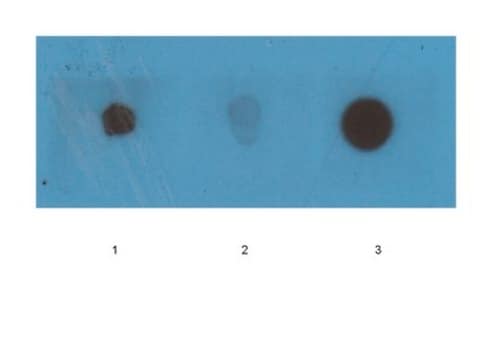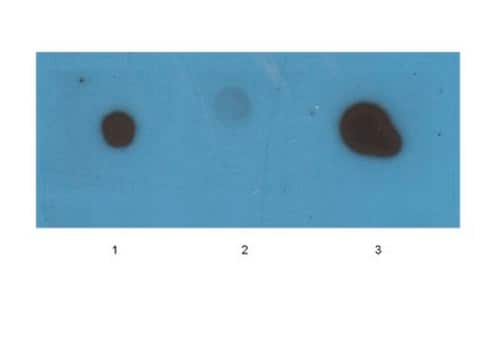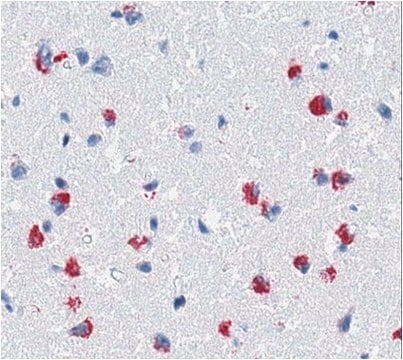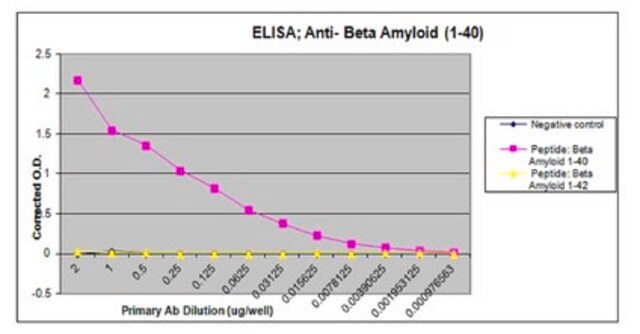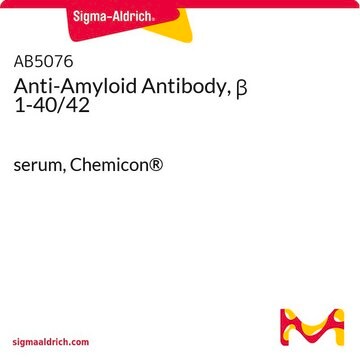AB9234
Anti-Amyloid Oligomer Antibody, αβ, oligomeric
serum, Chemicon®
Synonym(s):
Anti-oligomer
About This Item
Recommended Products
biological source
rabbit
Quality Level
antibody form
serum
antibody product type
primary antibodies
clone
polyclonal
species reactivity
rat, eukaryotes, mouse
species reactivity (predicted by homology)
human
manufacturer/tradename
Chemicon®
technique(s)
ELISA: suitable
immunofluorescence: suitable
immunohistochemistry (formalin-fixed, paraffin-embedded sections): suitable
immunoprecipitation (IP): suitable
western blot: suitable
NCBI accession no.
UniProt accession no.
shipped in
dry ice
target post-translational modification
unmodified
Gene Information
human ... APP(351)
General description
Specificity
Immunogen
Application
A 1:1,000-1:10,000 concentration was used on a previous lot.
Immunoprecipitation:
A 1:1,000 concentration was used on a previous lot. Suggested cell lysis buffer is RIPA. Suggested capture agent is magnetic beads (Dynabeads). Known co-precipitatiing polypeptide: Amyloid beta, alpha synuclein oligomers.
ELISA (direct):
A previous lot of this antibody was used in ELISA.
Optimal working dilutions must be determined by the end user.
Neuroscience
Neurodegenerative Diseases
Quality
Western Blotting Analysis:
1:500 dilution of this antibody detected AMYLOID OLIGOMER on 10 μg of mouse brain lysates.
Physical form
Storage and Stability
Analysis Note
Brain
Other Notes
Legal Information
Disclaimer
Not finding the right product?
Try our Product Selector Tool.
Storage Class Code
12 - Non Combustible Liquids
WGK
WGK 1
Flash Point(F)
Not applicable
Flash Point(C)
Not applicable
Certificates of Analysis (COA)
Search for Certificates of Analysis (COA) by entering the products Lot/Batch Number. Lot and Batch Numbers can be found on a product’s label following the words ‘Lot’ or ‘Batch’.
Already Own This Product?
Find documentation for the products that you have recently purchased in the Document Library.
Our team of scientists has experience in all areas of research including Life Science, Material Science, Chemical Synthesis, Chromatography, Analytical and many others.
Contact Technical Service
